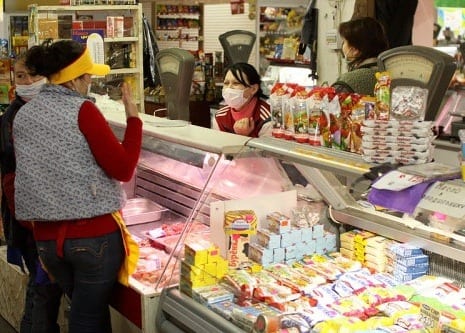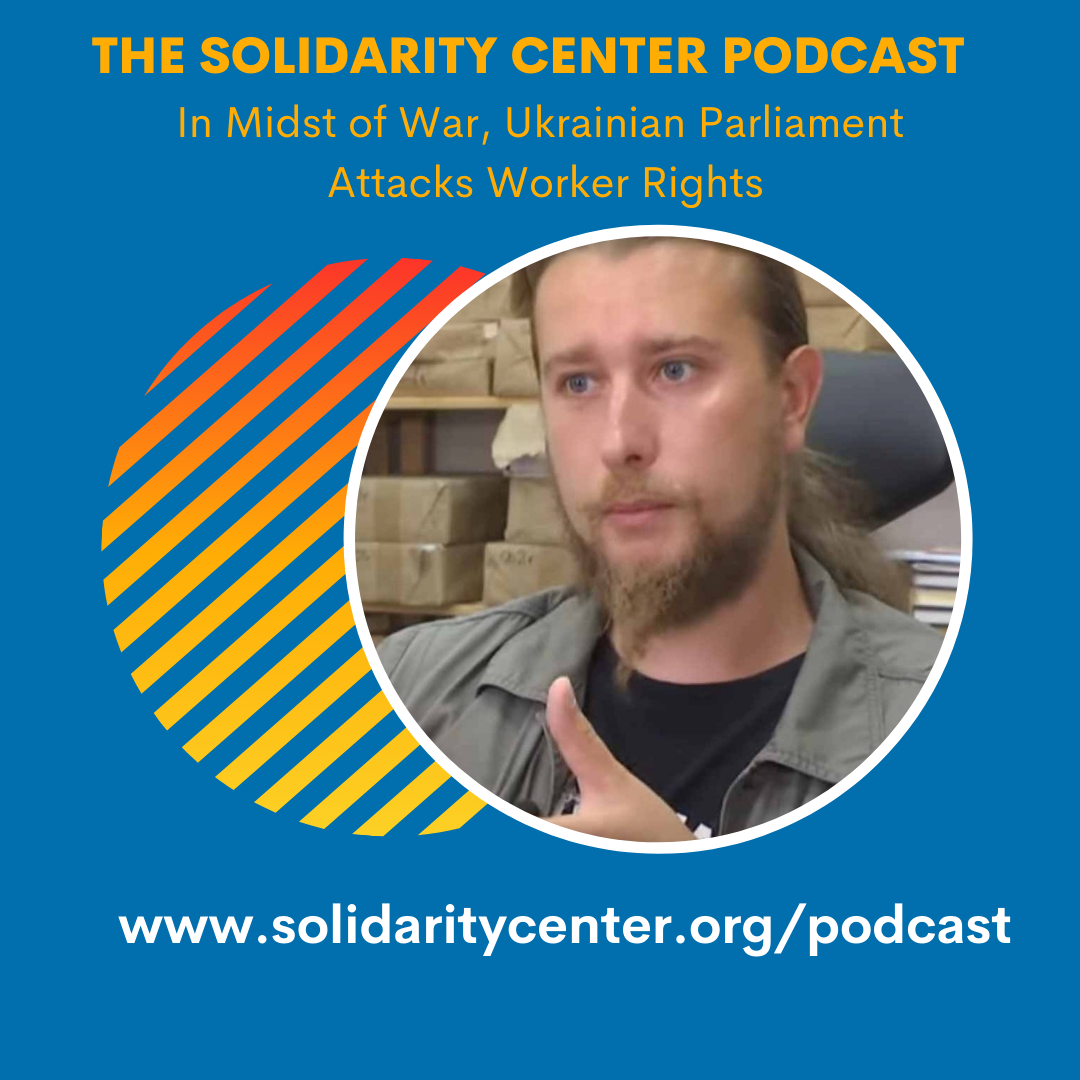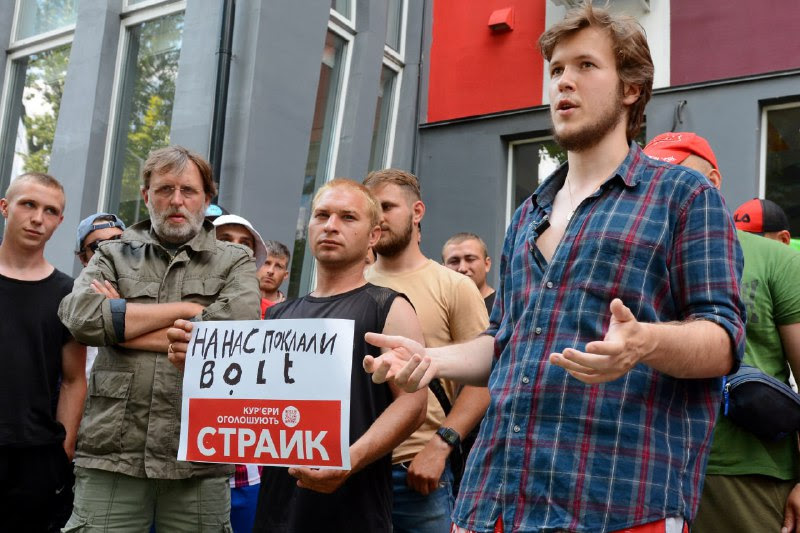In a significant assault on worker rights in Ukraine, President Volodymyr Zelensky last week signed into law legislation that deprives around 73 percent of workers of their right to union protection and collective bargaining. “For more than 15 months, the Federation...
Europe & Central Asia
 In Europe and Central Asia, the Solidarity Center helps unions defend worker rights, promote legal reform and adherence to international labor standards and help workers gain their rightful voice in the political and economic processes.
The economy throughout the region has been buffeted by the sluggish Euro-zone economy, where European Union policy since 2008 has promoted harsh fiscal “austerity” that has deepened and lengthened the economic crisis. The region’s economy also is tied in with the Russian economy, which is heavily dependent upon the energy market.
Further, workers have seen rollbacks in workplace protections and social benefits and diminished benefits under collective bargaining agreements as a result of the International Monetary Fund’s push for a radical free-market approach.
With fewer formal economy jobs available, more and more workers in this region seek jobs in the low-wage informal economy, where workplace protections are few or non-existent. Other workers are forced to migrate to find a job.
With Russia, Ukraine has the second largest migration corridor in the world, and labor migration within the region continues to grow, especially as more Ukrainians, Moldovans and southeastern Europeans seek employment in western Europe. In addition, Central Asian workers increasingly are migrating to Russia.
Throughout the Central Asia region, governments have implemented civil society restrictions, with the notable exception of Kyrgyzstan, which has a nominally democratic government. Labor rights reporters and advocates have been imprisoned for their work, or faced other legal penalties. Unions are frequently under attack by both employers and governments.
In this increasingly repressive climate, women and LGBT workers have been especially hard-hit. Protections and social benefits for women in the workplace have been rolled back and violence against women and LGBT workers is widely denied or ignored. LGBT workers are routinely denied protection from workplace discrimination.
To address ongoing labor rights abuses, and hold governments in Central Asia accountable to their obligations under international labor conventions, the Solidarity Center in 2016 joined with independent trade unions, human rights organizations and other interested groups to form the Central Asian Monitoring Mission. Mission partners train activists to document and report violations, exchange information, analyze regional trends and provide critical support for human rights defenders and organizations under threat.
The Mission has undertaken successful solidarity campaigns that freed human rights activists, and utilized its database of violations to provide facts that counter government propaganda and provide the foundation for reports and complaints to the International Labor Organization.
Solidarity Center programs also promote democratic political reforms that encourage participation of workers and their families in the political process, strengthening the role of unions as a fundamental segment of civil society.
In Europe and Central Asia, the Solidarity Center helps unions defend worker rights, promote legal reform and adherence to international labor standards and help workers gain their rightful voice in the political and economic processes.
The economy throughout the region has been buffeted by the sluggish Euro-zone economy, where European Union policy since 2008 has promoted harsh fiscal “austerity” that has deepened and lengthened the economic crisis. The region’s economy also is tied in with the Russian economy, which is heavily dependent upon the energy market.
Further, workers have seen rollbacks in workplace protections and social benefits and diminished benefits under collective bargaining agreements as a result of the International Monetary Fund’s push for a radical free-market approach.
With fewer formal economy jobs available, more and more workers in this region seek jobs in the low-wage informal economy, where workplace protections are few or non-existent. Other workers are forced to migrate to find a job.
With Russia, Ukraine has the second largest migration corridor in the world, and labor migration within the region continues to grow, especially as more Ukrainians, Moldovans and southeastern Europeans seek employment in western Europe. In addition, Central Asian workers increasingly are migrating to Russia.
Throughout the Central Asia region, governments have implemented civil society restrictions, with the notable exception of Kyrgyzstan, which has a nominally democratic government. Labor rights reporters and advocates have been imprisoned for their work, or faced other legal penalties. Unions are frequently under attack by both employers and governments.
In this increasingly repressive climate, women and LGBT workers have been especially hard-hit. Protections and social benefits for women in the workplace have been rolled back and violence against women and LGBT workers is widely denied or ignored. LGBT workers are routinely denied protection from workplace discrimination.
To address ongoing labor rights abuses, and hold governments in Central Asia accountable to their obligations under international labor conventions, the Solidarity Center in 2016 joined with independent trade unions, human rights organizations and other interested groups to form the Central Asian Monitoring Mission. Mission partners train activists to document and report violations, exchange information, analyze regional trends and provide critical support for human rights defenders and organizations under threat.
The Mission has undertaken successful solidarity campaigns that freed human rights activists, and utilized its database of violations to provide facts that counter government propaganda and provide the foundation for reports and complaints to the International Labor Organization.
Solidarity Center programs also promote democratic political reforms that encourage participation of workers and their families in the political process, strengthening the role of unions as a fundamental segment of civil society.Podcast: In Midst of War, Ukrainian Parliament Attacks Worker Rights
Even as war rages in Ukraine, with daily bombings, food and medicine shortages and tens of thousands of displaced people crowded in cramped public spaces, the Ukrainian Parliament recently passed a series of laws that attack workers’ basic rights on the job and...
Bolt Delivery Drivers in Kyiv Demand Wages They Can Live On
Despite often heroic efforts to deliver food under war conditions, Bolt delivery drivers in Kyiv, Ukraine, have seen a 60 percent cut in wages—and they are demanding the company take immediate action to boost wages and provide vehicle maintenance support. Prohibited...



